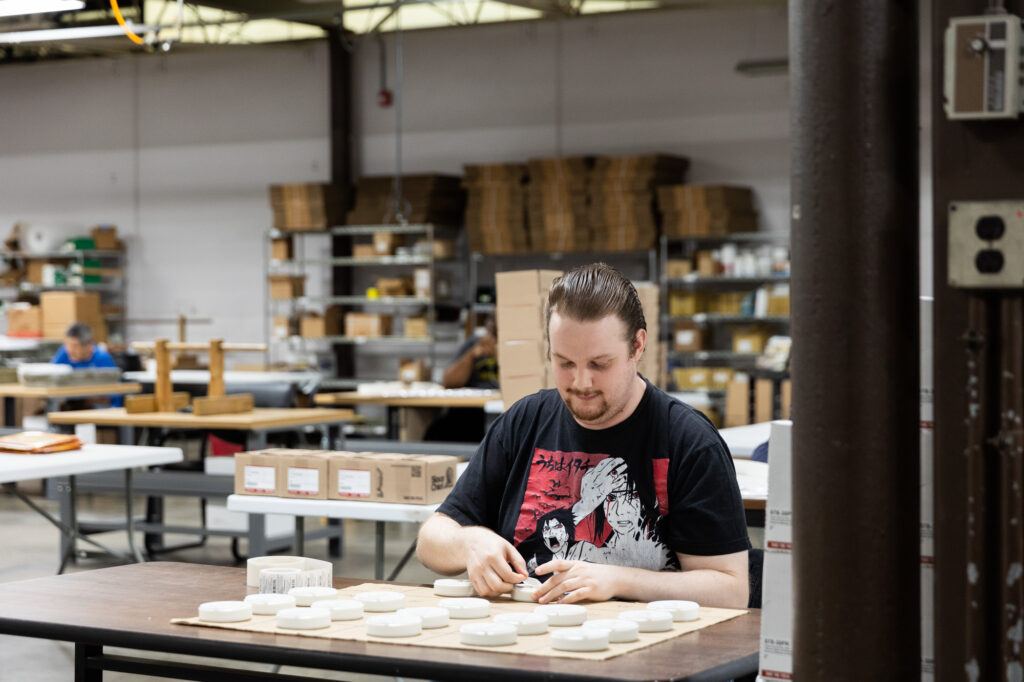
After a serious medical event, such as a stroke or brain injury, the basic tasks we perform daily to maintain our lives can become very difficult or even impossible. Older adults, in particular, may find it more challenging to regain their strength after an illness or a fall. Your abilities can determine whether you live in a nursing home, an assisted living center, or remain in your own home.
Skills like bathing, dressing, mobility and preparing meals are things we work on in a comprehensive day rehab program at Ability KC. Your ability to do the simplest tasks and more complex activities makes all the difference when you’re making care decisions.
This article defines activities of daily living (ADLs) and instrumental activities of daily living (IADLs), highlighting their role in maintaining your independence. It also explores how medical rehabilitation can help you preserve these essential abilities.
How can serious medical conditions affect a person’s independence?
Anytime your strength and coordination are affected by a medical condition, you may need help with basic daily tasks. An illness or serious injury can keep you off your feet for weeks or months. And a new disability will take adjustments in almost every area of life. You may not need hospital care for the whole time that you’re not feeling well. In many cases, people go home before they’re fully able to take care of themselves.
At a fundamental level, you should have your basic needs — such as cleanliness, nourishment, and clothing — met during your recovery. However, maintaining your home and quality of life involves more complex tasks like planning, organizing, cleaning and running errands. Understanding what you can manage on your own will help determine the type of care setting that best suits your needs and its associated costs. Options to consider include assisted living, nursing homes, memory care, and independent living at home. Your therapy team will work with you to recommend the care setting and level of support that is best suited to your needs.
What are activities of daily living (ADLs)?
ADLs are the simple things you do to maintain your cleanliness and health. It takes a bit of strength, dexterity and balance to get around your home. Things like getting up to use the toilet can become very difficult or dangerous, especially if you’re at a high risk for falls. Fortunately, medical rehab can help you regain your abilities to do these things or adapt them to make them easier.
In order to live somewhat independently, adults need to bathe, dress themselves, eat and get around their homes. You’ll need these basic skills to live independently or in a nursing home without personal assistance.
The following are some examples of activities of daily living (ADLs):
- Bathing or showering
- Dressing
- Getting in and out of bed or a chair
- Walking
- Using the toilet
- Eating
What are instrumental activities of daily living (IADLs)?
Instrumental activities of daily living (IADLs) take a bit more mental capacity and physical stamina than ADLs. They’re things we learn to do as young adults. Things like managing finances and running errands are necessary to live with full independence at home. IADLs require some organization, planning, communication and physical strength. They’re a little different for each person, so you also need strong judgment to make good decisions.
The following are examples of instrumental activities of daily living (IADLs):
- Shopping for food and other necessary items
- Meal planning and preparation
- Managing medications and taking them as recommended
- Cleaning and home maintenance
- Communicating by phone, email and “snail mail”
- Managing finances and paying bills
- Driving or managing other means of transportation
How medical rehab helps people maintain independence
Medical rehab usually begins in the hospital after an injury or a new diagnosis. A physical therapist may work with you to start recovering your strength, range of motion and mobility. An occupational therapist may help you with participation in activities of daily living and instrumental activities of daily living. A speech therapist may help you with things such as speech, swallowing and cognition. You may continue with rehab after discharge at an inpatient rehabilitation or an outpatient rehab center.
A comprehensive day rehab program helps with more than ADLs and IADLs, though these are important components. Ability KC has nursing staff available to provide medical care and monitoring, neuropsychology to help with coping and adjustment, and social workers to provide education and resources. Ability KC offers a wide variety of groups and camps to meet the unique needs of every individual served. We also have a driving program and Return-to-Work Navigator to assist those with the goal to return to the community.
At Ability KC, your integrated care team creates a personalized treatment plan to help you recover to the fullest extent that you can and achieve your specific rehab goals. We help our patients with every aspect of their lives, from mental and social well-being to driving and going to work. We provide critical education to help our patients understand their conditions and their health. And we help them adapt their diet, meal planning, grocery shopping and fitness routines for continued wellness.
Our patients’ independence and their dignity during rehabilitation are important to us. We maintain national and international accreditation for their safety. Ability KC is a designated Comprehensive Outpatient Rehabilitation Facility (CORF) with a Commission on Accreditation of Rehabilitation Facilities (CARF) accreditation.
Do you need assistance with activities of daily living and other critical skills for your independence? Contact our team today for more information or to schedule an initial appointment.